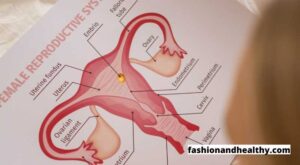Polycystic ovary syndrome (PCOS) is characterized by hormonal imbalances, irregular periods and/or the appearance of small cysts on one or both ovaries. This condition can affect up to 7% of adult women.
Hormonal imbalances, insulin resistance, and inflammation related to the condition make it difficult for women with PCOS to lose weight.
However, even a slight weight loss of about 5% can improve insulin resistance, hormone levels, menstrual cycles, fertility, and overall quality of life in women with PCOS.
Weight loss for PCOS and hypothyroid patients involves a comprehensive approach. Focus on a balanced diet, regular exercise, and stress management. Prioritize nutrient-dense foods and consult with healthcare professionals for personalized guidance.
Tips to lose weight with PCOS:

Reduce your carbohydrate intake:
Reducing carbohydrate intake can help manage PCOS due to the impact of carbohydrates on insulin levels. About 70% of women with PCOS have insulin resistance, which is when your cells no longer recognize the effects of the hormone insulin.
Insulin is needed to manage blood sugar and store energy in the body. Research associates high insulin levels with increased body fat and weight gain in the general population—and in women with PCOS. In one study, obese women with PCOS and insulin resistance followed a 3-week diet of 40% carbohydrates and 45% fat, then a 3-week diet of 60% carbohydrates and 25% fat. Protein intake was 15% during each phase.
Suggestion For you: PCOD Problems And Homoeopathic Management
While blood sugar levels were similar during the two phases of the diet, insulin levels dropped by 30% during the lower-carb, higher-fat phase.
Furthermore, a low-glycemic diet may be beneficial for women with PCOS. The glycemic index (GI) measures how quickly a particular food raises blood sugar.
In one study, women followed a regular diet for 12 weeks, followed by a low GI diet for 12 weeks. Their measurements of insulin sensitivity (how effectively the body uses insulin) were significantly better during the low GI phase.
Consume plenty of fiber:

Because fiber helps you stay full after a meal, a high-fiber diet may improve weight loss in women with PCOS. In the United States, the Reference Daily Intake (RDI) for fiber is 14 grams per 1,000 calories—or about 25 grams per day for women. However, the average daily fiber intake of US women is only 15-16 grams.
In one study, higher fiber intake was linked to lower insulin resistance, total body fat, and abdominal fat in women with PCOS—but not in women without PCOS. In another study of 57 women with the condition, higher fiber intake was associated with lower body weight.
Consume enough protein:
Protein helps stabilize blood sugar and increase satiety after a meal. It can also aid in weight loss by reducing cravings, helping you burn more calories, and managing hunger hormones. In one study, 57 women with PCOS were given either a high-protein diet – more than 40% of calories from protein and 30% from fat – or a standard diet consisting of less than 15% protein and 30% fats.
Suggestion For You: Drinking More Water Can Aid Weight Loss
Women in the high-protein group lost an average of 4.4 kg (9.7 lbs) after 6 months—significantly more than those in the control group. If you’re worried you’re not getting enough protein, you can add it to your meals or choose protein-rich snacks. Healthy, protein-rich foods include eggs, nuts, dairy, meat, and seafood.
Eat healthy fats:

Plenty of healthy fats in your diet can help you feel more satisfied after meals and address weight loss and other symptoms of PCOS. In a study of 30 women with PCOS, a low-fat diet (55% carbohydrates, 18% protein, 27% fat) was compared with a high-fat diet (41% carbohydrates, 19% protein, 40% fat).
After eight weeks, the higher-fat diet resulted in greater fat loss — including belly fat — than the lower-fat diet, which also reduced lean body mass. Although fat is high in calories, adding healthy fats to meals can increase stomach volume and reduce hunger. This can help you eat fewer calories throughout the day.
Healthy fats include avocados, olive oil, coconut oil, and nut butters. Combining healthy fats with a source of protein can further increase the filling effects of meals and snacks.
Limit processed foods and added sugars:

Another tip to lose weight with PCOS is to cut back on certain unhealthy foods. Processed foods and added sugars can raise blood sugar levels and increase the risk of insulin resistance, which is linked to obesity. Women with PCOS may process sugar differently than women without PCOS.
Research shows that women with PCOS experience more significant increases in blood sugar and insulin after consuming the same sugar as women without the condition. Studies show that natural, minimally processed foods raise blood sugar less than highly processed foods and are more satisfying.
In addition, experts recommend that women with PCOS limit their intake of added sugars and refined carbohydrates to manage symptoms and maintain a healthy body weight. Foods high in added sugar and refined carbohydrates include cakes, cookies, candy and fast food.
Reducing inflammation:
Inflammation is your body’s natural response to infection or injury. But chronic inflammation — common in women with PCOS — is linked to obesity. Sugar and processed foods can contribute to inflammation. In one study, 16 women with PCOS who took a single dose of 75 grams of glucose — a type of sugar — had higher markers of inflammation in their blood than women without the condition.
Suggestion For You: 13 Tips To Help You Lose Weight
A Mediterranean diet—rich in fruits, vegetables, whole grains, olive oil, and foods rich in omega-3s such as fatty fish—may protect against inflammation.
Don’t eat too much:

Long-term calorie restriction can slow your metabolism. Although caloric restriction is likely to result in short-term weight loss, over time, the body adapts to this restriction by reducing the total number of calories it burns, resulting in weight regain.
Eating too few calories can also have a negative impact on the hormones that control appetite. For example, in one study, a restrictive diet was found to alter the hormones leptin, peptide YY, cholecystokinin, insulin, and ghrelin, which increased appetite and led to weight gain.
Instead of restricting calories, it’s best to focus on eating whole foods and cutting out unhealthy foods. For example, one study of more than 600 people suggested that eating more vegetables and whole foods—while reducing your intake of processed foods, refined grains, and added sugars—can help promote weight loss without to restrict calories.
Exercise regularly:

Exercise is a well-known strategy to improve weight loss. In a 12-week study in which 16 women did 45-60 minutes of cardio three times a week, those with PCOS lost 2.3% of their body fat, compared to 6.4% in the control group.
While women with PCOS lost less fat than those without the condition, the exercise regimen led to loss of belly fat and improved insulin sensitivity.
Suggestion For You: Chia Seeds for Weight Loss
Weight training has also been shown to help women with PCOS. In one study, 45 women with PCOS did weight training three times a week. After four months, they lost belly fat and gained lean body mass while reducing testosterone and blood sugar levels.
Get enough sleep:

Sleep is increasingly recognized as essential to your health. If you have PCOS, you may experience sleep disturbances, including excessive daytime sleepiness, sleep apnea, and insomnia.
Lack of sleep has been shown to increase the activity of hunger hormones such as ghrelin and cortisol, which can cause you to eat more throughout the day. Insufficient sleep is associated with a higher risk of being overweight or obese.
A review of 18 studies found that those who slept less than 5 hours a night were significantly more likely to be obese. In addition, the study demonstrated that each additional hour of sleep per night was associated with a decrease in body mass index (BMI) of 0.35 kg per square meter.
Additionally, studies have linked better quality sleep to fat loss. In one study, healthy adults who slept less than 6 hours a night had a 12% higher risk of developing belly fat than those who slept 6-8 hours a night.
Suggestion For You: Facts About Insomnia
Manage your stress:

Because stress is a risk factor for weight gain, managing stress can help you manage your weight. Stress increases the level of cortisol, a hormone produced by the adrenal glands. Chronically high cortisol levels are linked to insulin resistance and weight gain. Chronic stress also increases the risk of developing belly fat. In turn, belly fat increases inflammation, which causes your body to produce more cortisol—creating a vicious cycle.
To lower your cortisol levels, focus on stress management practices. Studies note that techniques such as meditation, yoga and spending time in nature can help lower cortisol levels.
Consider supplements:
If you have PCOS, several supplements can help manage your weight and symptoms. Myo-inositol is a supplement that can lead to weight loss in women with PCOS. Inositol is a compound related to B vitamins that helps improve insulin sensitivity. Myo-inositol is a specific form of inositol.
In a randomized trial of 92 women with PCOS, half of them received 4 grams of myo-inositol per day for 14 weeks. While those in the inositol group lost weight, those in the placebo group gained weight. Carnitine, an amino acid found in meat, can also lead to weight loss.
In a 12-week study of 60 overweight women with PCOS, those who took 250 mg of carnitine per day lost an average of 5.9 pounds (2.7 kg), compared with a gain of 0.2 pounds pounds (0.1 kg) in the placebo group.
Conclusion:
In conclusion, PCOD may be the cause of weight gain and there are solutions available to help. Losing weight can be difficult, but it’s important to get started on a healthy lifestyle. A balanced diet and regular exercise are key to success. Speak with your doctor about what treatment options are available to you.
The only solution is to seek medical help and follow the treatments prescribed. PCOD can be managed with proper treatment and regular check-ups. To get rid from PCOD or PCOS you can try supplement also which will help you to lose weight and make you feel healthy without any side effects. Go through below link to get more detailed information about the supplement to put your 100% trust on it and get rid from obesity without any diets or exercises.

